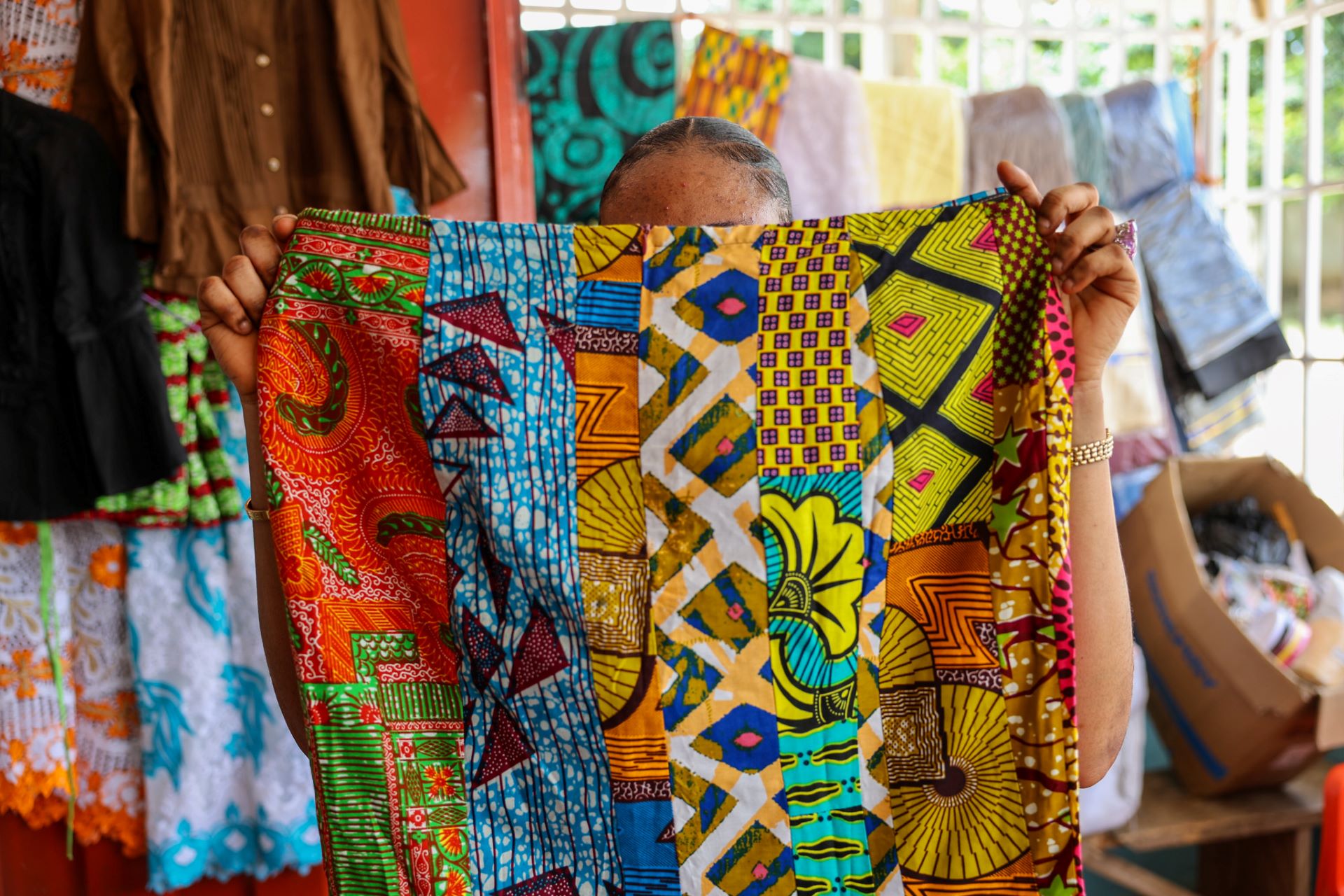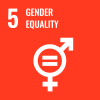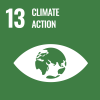Kumasi, Ghana – In the vibrant city of Kumasi, the second largest in Ghana, lies the shop of Adjoa*, a survivor of trafficking whose journey embodies resilience, creativity, and a profound commitment to sustainability. After enduring exploitation in Kuwait, Adjoa returned to Ghana and, with support from the International Organization for Migration (IOM), emerged as an eco-fashion entrepreneur. She weaves together threads of hope and purpose to create one-of-a-kind garments, while also championing sustainability and climate action.
After being trafficked and enduring unimaginable hardships, Adjoa found her way to freedom. Determined to rebuild her life with dignity, she embarked on a journey of self-discovery and empowerment, finding her passion for fashion.
"As a survivor, I knew I had to turn my pain into purpose. Fashion became my outlet for self-expression and healing," says Adjoa.

Photo: IOM Ghana/Angela Bortey
As she honed her skills as a dressmaker, Adjoa became increasingly aware of the environmental impact of the fashion industry, including excessive resource use and significant waste from fast fashion. Ghana’s markets, like Accra’s Kantamanto and Kumasi’s Kejetia, are overflowing with second-hand clothes from the West, often ending up in landfills. Determined to counter these practices, Adjoa committed to creating fashion that celebrates creativity, beauty, and sustainability.
"I wanted to prove that fashion can be both beautiful and sustainable. We don't have to sacrifice style for the sake of the planet," Adjoa asserts with conviction.
In her Kumasi shop, fabric scraps destined for the landfill find new life as works of art. Adjoa meticulously collects remnants from her fashion school and other seamstresses, weaving them into unique fabrics for dresses and skirts. Each garment she creates reflects her creativity and dedication to sustainability.
"Every piece of fabric has a story to tell. By giving new life to discarded materials, we're reducing waste and creating something beautiful and meaningful," Adjoa explains, her hands deftly working the fabric.
Adjoa's commitment to sustainable fashion extends beyond her creations. With support from IOM, she established a fashion school where she trains three apprentices. At the school, she educates her apprentices about the environmental impact of the fashion industry and inspires them to adopt sustainable practices. Alongside technical skills, she teaches teamwork and other essential life skills.
"In a world facing urgent environmental challenges, we all have a responsibility to do our part. Through sustainable fashion, we can positively impact the planet and create a better future for generations to come," says Adjoa.
Adjoa is one of 60 survivors of human trafficking in Ghana and Nigeria who received small business grants, business mentoring, and survivor led support and mentorship through IOM’s Enhanced Reintegration Support for Survivors of Trafficking (ERS) project, funded by the US Department of State, Office to Monitor and Combat Trafficking in Persons (JTIP).
*Adjoa’s name has been changed to protect her identity.
Story by Angela Bortey and Juliane Reissig, IOM Ghana.



